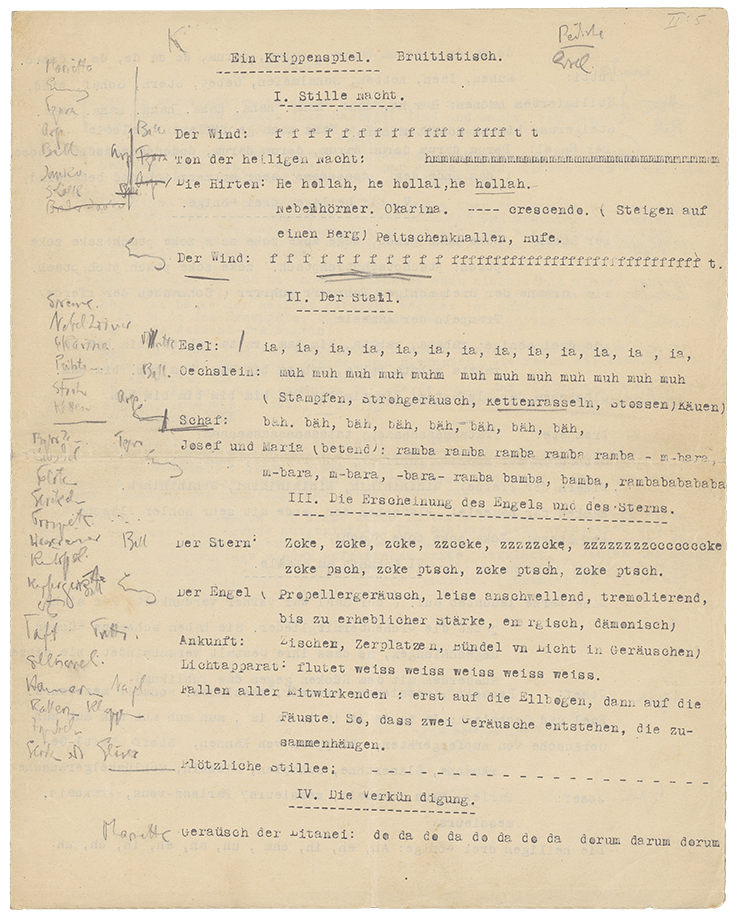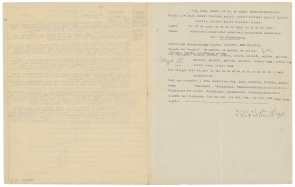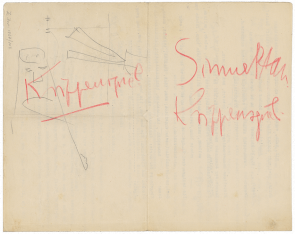In late May 1916, visitors of the Cabaret Voltaire were taken by surprise in the form of a Nativity play penned by Hugo Ball. Not only was the date of the stage production surprising, but also its style. This dadaized “Silent Night” was celebrated almost without words, but with snorts, foghorns, ocarina, whip, cymbals, pans, and lighting gear. The author himself called it bruitist and simultaneous. In no other production the Cabaret team gave that much of an ensemble performance as in this play of seven short acts. The stage directions included: Hans Arp (“baa, straw sound”), Ball (“the wind”), Emmy Hennings (“lullaby,” “angel’s propeller sound”), Marcel Janco (“lighting apparatus: flooding white white white white white”), Marietta di Monaco (“hee-haw, hee-haw, hee-haw”), Tristan Tzara (“small sounds, whip crack”), and their bookdealer friend Johann Schalk (“moo, key”). The “tutti” passages were a rare instance of Dada united. In accordance with the bruitist character, Ball wrote of “orchestra members.” Cloaked in black sheets, they turned their backs to the audience in the stable scene, devoutly fixing their gaze on the French-speaking Joseph, on Mary, and a candle shining in the dark of the room.
The production which made Emmy Hennings’ nine-year-old daughter “go wild with excitement over all the colours and dizzying fuss” (Hugo Ball) did not hit the audience as an affront. Ball’s language experiments were so subtly arranged and soundly thought through that there was no room left for laughter and ridicule. The same is true of his sound poems (“Verse ohne Worte” [Verses Without Words]), which he first publicly recited on 23 June 1916. A sweat-covered magic bishop, wearing cubistic body armour and a cylindrical shamanic hat, he was carried off the stage and into silent contemplation. Ball was not a linguistic funmaker, but one who, in the guise of “Saint Hugo,” took literature back to its creative zero point.
Typescript with handwritten stage directions and notes by Hugo Ball. 2 double sheets of stiff typewriter paper and 1 sheet of handmade paper. Provenance: Donation from Annemarie Schütt-Hennings, Agnuzzo, 1967.
→ Cabaret Voltaire, DADA III:37
→ Karl Schlegel, invitation card for the opening of the Künstler-Kneipe Voltaire, DADA V:49





